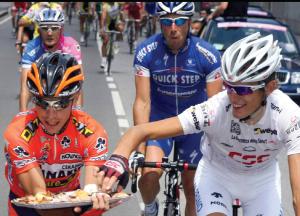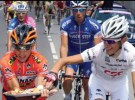Busy athletes, both elite and recreational can get a little lazy when it comes to their nutritional preparation. Long training hours on the bike can often mean that cyclists can eat significantly more kilojoules than the average person without any real fear of gaining weight. All too often this translates into food choices of muffins, cakes, banana bread, energy drinks as well as high fat food treats which offer little nutritionally. A high volume of training though does not detract from the fact that there are still important things nutritionally that all athletes need to do to ensure good long term health. Here are the most important food habits that all cyclists need to adopt if they are to ensure optimal performance, preparation and recovery.
Always Eat Before Your Morning Ride
 While you may not be hungry, even if you pack a small snack to eat while you are out on the bike, it is important that you plan to eat something relatively early into your ride. After the overnight fast, a period of moderate to high physical activity that lasts longer than 60 minutes will result in muscle breakdown as the body seeks to maintain blood glucose levels by preserving glycogen stores. A couple of slices of toast with peanut butter, a liquid meal drink or a protein shake is all you need to refuel your liver and optimise fat burning on your ride.
While you may not be hungry, even if you pack a small snack to eat while you are out on the bike, it is important that you plan to eat something relatively early into your ride. After the overnight fast, a period of moderate to high physical activity that lasts longer than 60 minutes will result in muscle breakdown as the body seeks to maintain blood glucose levels by preserving glycogen stores. A couple of slices of toast with peanut butter, a liquid meal drink or a protein shake is all you need to refuel your liver and optimise fat burning on your ride.
Base Your Snacks Around Carbs and Protein
While energy gels, sports drinks, energy bars and lollies offer high amounts of carbohydrate in relatively small volumes of food, the truth is that they tend to offer little other nutritionally. Keep such high energy foods for the last third of races and training rides and instead base your ‘on the bike’ snacks around a mix of both carbohydrates and proteins. Not only will your blood sugar levels be better regulated, but your total energy intake is also likely to be lower which is important for weight control long term.
Eat at Least Two Salad Vegetables a Day
This one may seem a little boring but the truth of the matter is that any individual training for more than an hour each day is likely to have higher nutrient requirements than the average person. For this reason, the greater the volume of brightly coloured fresh fruits and vegetables eaten on a daily basis the better. Aim to pack at least two salad vegetables to eat with your lunch and aim for your dinner plate to be half filled with salad or veggies every single day.
Limit High Fat Foods
You may be churning out many kilometres on the bike each week but that does not mean your heart requires any extra saturated fat. Fried foods including chips, burgers, egg and bacon rolls as well as pastry based products are exceptionally high in saturated fat and should be enjoyed at most once or twice each week.


